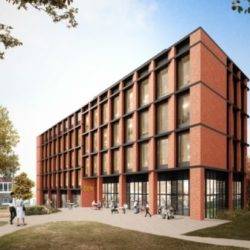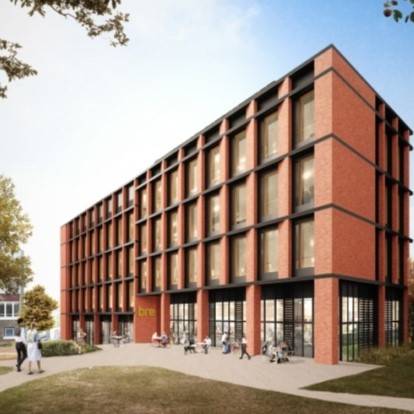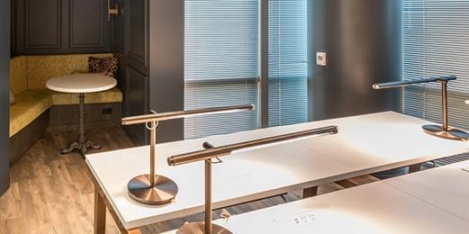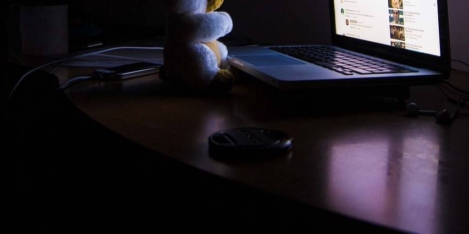September 5, 2018
BRE announces plans for £10m innovation hub building
 UK based building research body BRE has announced plans for a new research centre building at its campus in Hertfordshire. The new Open Innovation Hub will be built on the current site of a redundant and soon to be demolished 1960’s office block, known as Building 4, at the organisation’s Garston base. BRE says the new building, designed by architects AHMM will create a national and international centre for research and innovation in emerging sectors such as digital, connected and smart built environment. The four-floor 35,000 sq ft building will offer high-quality incubation and SME acceleration space to facilitate collaboration between the research base, large firms and knowledge-intensive SMEs. BRE aims to see the £10m build project achieve a BREEAM outstanding environmental accreditation. Once finished it will create 150 jobs and BRE also hopes to attract as many as 25 new firms to its Enterprise Zone.
UK based building research body BRE has announced plans for a new research centre building at its campus in Hertfordshire. The new Open Innovation Hub will be built on the current site of a redundant and soon to be demolished 1960’s office block, known as Building 4, at the organisation’s Garston base. BRE says the new building, designed by architects AHMM will create a national and international centre for research and innovation in emerging sectors such as digital, connected and smart built environment. The four-floor 35,000 sq ft building will offer high-quality incubation and SME acceleration space to facilitate collaboration between the research base, large firms and knowledge-intensive SMEs. BRE aims to see the £10m build project achieve a BREEAM outstanding environmental accreditation. Once finished it will create 150 jobs and BRE also hopes to attract as many as 25 new firms to its Enterprise Zone.






 London has joined 18 other cities around the world, including Paris, New York and Tokyo, in a landmark commitment to make all new buildings operate at net zero carbon by 2030. Regulations and planning policy will also target existing buildings to make them net-zero carbon by 2050. Net zero carbon buildings are buildings which reduce all energy use as far as technically possible, with remaining demand met through renewables. The commitment has been orchestrated by C40 cities, a global group of major cities committed to delivering on the most ambitious goals of the Paris Agreement at the local level. As city authorities do not have direct control over all the buildings in their area, the commitment includes a pledge to work together with the private sector as well as state and regional governments to drive the transformation. This pledge from cities is part of the World Green Building Council’s
London has joined 18 other cities around the world, including Paris, New York and Tokyo, in a landmark commitment to make all new buildings operate at net zero carbon by 2030. Regulations and planning policy will also target existing buildings to make them net-zero carbon by 2050. Net zero carbon buildings are buildings which reduce all energy use as far as technically possible, with remaining demand met through renewables. The commitment has been orchestrated by C40 cities, a global group of major cities committed to delivering on the most ambitious goals of the Paris Agreement at the local level. As city authorities do not have direct control over all the buildings in their area, the commitment includes a pledge to work together with the private sector as well as state and regional governments to drive the transformation. This pledge from cities is part of the World Green Building Council’s 










 There is a critical need for to simplify the regulatory framework designed to improve energy efficiency in commercial buildings finds a recent report from the Environmental Industries Commission (EIC) Carbon Management & Sustainable Buildings Working Group. It also suggests that Brexit could act as a spur to rethink the right combination of policies to reform enforcement systems. The report, Improving non-domestic energy efficiency after Brexit, one of a series EIC is publishing setting out its members’ views on the impact of Brexit on environmental policy and how policy should evolve after the UK leaves the EU, covers the breadth of energy efficiency policy for non-domestic buildings. As part of its research, EIC surveyed England’s local authorities, who have responsibility for trading standards, finding that out of those that responded (122 out of 149), no local authorities have been issuing fines for failing to display Energy Performance Certificates or Display Energy Certificates.
There is a critical need for to simplify the regulatory framework designed to improve energy efficiency in commercial buildings finds a recent report from the Environmental Industries Commission (EIC) Carbon Management & Sustainable Buildings Working Group. It also suggests that Brexit could act as a spur to rethink the right combination of policies to reform enforcement systems. The report, Improving non-domestic energy efficiency after Brexit, one of a series EIC is publishing setting out its members’ views on the impact of Brexit on environmental policy and how policy should evolve after the UK leaves the EU, covers the breadth of energy efficiency policy for non-domestic buildings. As part of its research, EIC surveyed England’s local authorities, who have responsibility for trading standards, finding that out of those that responded (122 out of 149), no local authorities have been issuing fines for failing to display Energy Performance Certificates or Display Energy Certificates.













September 6, 2018
Creating a productive workplace for people is all about context
by Mark Eltringham • Comment, Facilities management, Workplace, Workplace design
(more…)